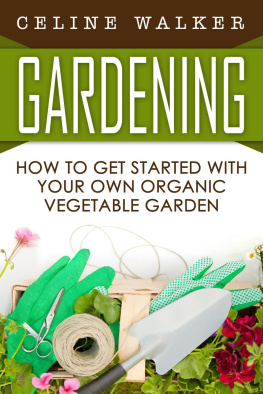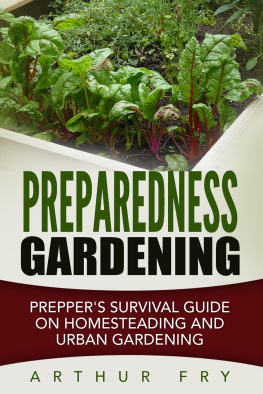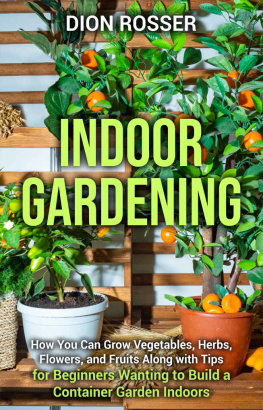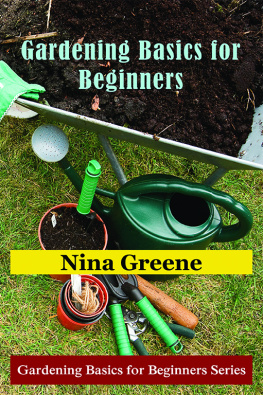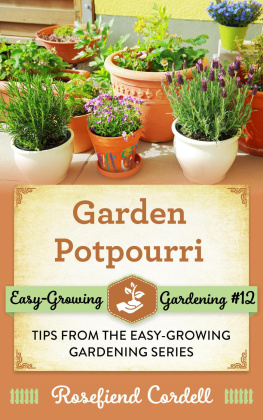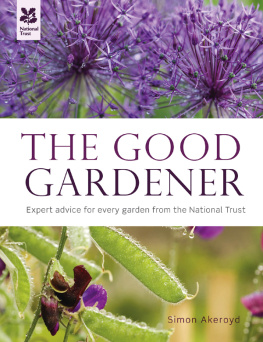Since the beginning of time, the acts of survival and gardening have gone hand-in-hand. Though today many view the practice of gardening as a healthy hobby or pastime, the truth is that those of us who know how to produce and harvest their own crops have an upper hand in contrast with the rest of society: should the circumstances ever arise in which our access to food would be drastically limited (or altogether cut off), the green-thumbed members of our population would still be able to live comfortably. In that regard, gardening isnt simply a hobby; rather, its a way of life thats been in practice for centuries, and still remains as the most basic, safest, and guaranteed means of acquiring food known to mankind.
Even in terms of a personal emergency, gardening can prepare you in ways that other methods fall short. Survival gardening lets you ready yourself for virtually any drastic circumstance, whether the economy collapses to the point at which people find themselves destitute, or a major storm wipes out the resources and transportation lines to an entire region. If ever you find yourself penniless and unable to pay the grocery bill, your lush garden can sustain you and see you through the tough times. Likewise, if your region were to be wiped out due to a catastrophic storm and it took prolonged periods of time for aid to reach you, the garden you worked hard to cultivate would still put food on the table.
Of course, you might think that stockpiling offers the solution to these catastrophes, and in a way, it does. But, the truth of the matter is that stockpiling provides only a temporary solution. At a certain point, youre going to run out of the supplies that youve collected; theres no plausible way for you to store an infinite supply of food, or one that will be replenished on its own. The most promising way to secure your future is to learn how to grow your own food so that it will, in fact, be able to last you through the foreseeable future, should any disasters arise.
Think of it this way: how were our ancestors able to survive through the Great Depression and World War II? There was rationing, of course, but many individuals had to rely on home-grown produce and goods developed by volunteer farmers. They were largely responsible for providing food for individuals on a national and local level. Nowadays, though, the art of gardening is lost on many; the demands of a 24/7 workforce and a chaotic, nonstop world has left many people with little time for hobbies or pleasures, especially something as seemingly antiquated as gardening. After all, who would spend the time or put in the extra effort to grow his or her own food, when there are grocery stores, farmers markets, and natural food stores where we can purchase fresh produce with convenience?
Heres the thing, though: growing your own produce isnt just a hobby or relaxing pastime, nor should it be viewed as such. Of course, if those are your reasons for growing your own goods in the first place, then thats fine! Gardening is fulfilling, enjoyable, and some even say, soothing for the soul. But lets not overlook the fact that growing your own crops was once a necessity for survival, and should still be considered as such.
Unfortunately, the art of survival is a skill thats lost on many individuals in todays world. Yet, you dont have to be an extremist to recognize the fact that there are changes taking place every day, and that the shifts that our world is experiencing have the potential to do great damage on our environment or ways of life. There are no guarantees that the comforts we rely on day in and day out will be here tomorrow, which begs the question: if the food supplies you rely on were taken away right now, how would you survive for the foreseeable future?
This guide answers that question for you. For individuals who have zero familiarity with gardening, those who have lived in an urban environment their whole lives, or even those who are skilled gardeners but would like to learn a bit more about the survival aspect of the practice, this guide is intended for anyone. Theres a wealth of information to be learned about how you can survive off the land, and whether youre looking for peace of mind in the fact that youll outlive a disaster or you simply want to learn how to make your own food from the seed to the table, then this guide is a must-read.
Table of Contents
First things, first, I know youre excited to start reading and learning what you need to know about Living off the Land but, we wanted to let you in on something you might miss out on otherwise. And thats an invitation to our mailing list that promotes 100% FREE eBooks!
So yeah, weve got a pretty sweet mailing list. We publish eBooks every once in a while (all our non-fiction titles are free) and we thought it might be nice if we could give you a heads-up next time we put something out there. We also share other FREE eBooks by other authors. So, if advanced notice is something youre into just follow the link below and well send you a quick daily email about a lot of great FREE stuff:
http://www.pointedpublishing.com/live-off-the-land
Alright, lets get started shall we?
The amount of possibilities that gardening offers is virtually limitless. From the pickiest of eaters to those who will eat anything put in front of them, theres something for everyone when it comes to fresh produce. Of course, factors such as location and available space will determine which types of crops youll be able to produce, but youll be surprised to find that you can create a bountiful amount of food with very little resources.
This guide will walk you through the processes of establishing your gardening objectives and then framing them based on your limiting factors. Youll learn how to plan and plot your survival garden, and where to start even if you havent ever sown a seed in your life. For the learned gardener, youll find interesting tips about storing produce year-round, practicing all-seasons gardening, and using animal husbandry to work to your advantage.
If youre wondering about the amount of time and work that youll need to put into your garden, the answer is that it depends. Like any other aspect of survival, the amount of time and work youre willing to put into it is up to you. Similar to stockpiling, the success of your garden will be largely dependent on the amount of time you feel comfortable devoting to it. Of course, if you choose to plant a large spread of various crops and take up half of your backyard with your garden, youre inevitably going to have more produce than the individual who only has the time (and perhaps, space) to grow a couple of potted plants.
The bottom line is this, though: growing some produce is better than growing none. By choosing to produce your own vegetables or fruit, youre making a decision to become self-sufficient, at least partially, instead of relying on factors over which you have no control. You dont have to take on an alarmist point-of-view to begin to consider what might happen if there were a crop or gas shortage, or if transportation to your area were to be blocked as a result of a disaster. Anyone whos lived through a hurricane, tornado, or any other sort of natural disaster can relate: eventually, help does indeed arrive, but the chaos that ensues beforehand can become quite frightening.
Rioting, looting, and competition all come into play when people are robbed of their necessities. Individuals will go to extremes to protect their families, or to preserve their own lives. Why not take a bit of weight off your shoulders and develop these crucial skills so that you can rest assured that indeed, if disastrous circumstances were to arise, you could survive on your own?


